May 19, 2024 | 20:36 GMT +7
May 19, 2024 | 20:36 GMT +7
Hotline: 0913.378.918
May 19, 2024 | 20:36 GMT +7
Hotline: 0913.378.918
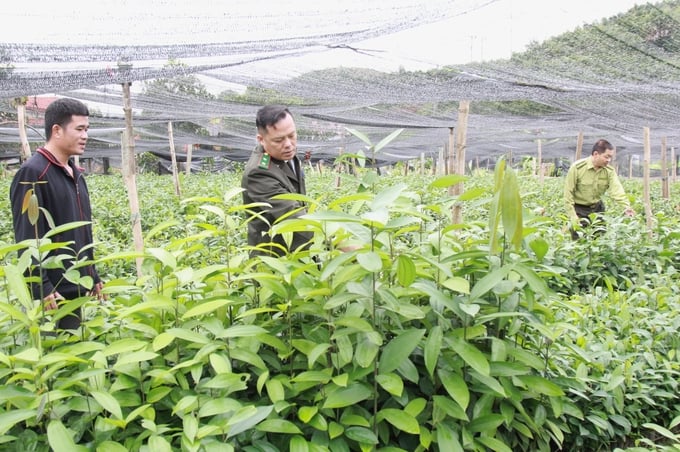
Yen Bai province boasts over 1,000 establishments engaged in producing and trading forestry seeds; however, only a few have the required licenses for operation. Photo: Thanh Tien.
Forestry plays a vital role in creating a renewable natural resource, contributing to watershed protection, climate and water source regulation, erosion, and landslide prevention, and the overall safeguarding of the ecological environment. The cornerstone of forestry economic development lies in plant varieties, with high-quality seeds catalyzing the adoption of advanced techniques and technology in production. This, in turn, enhances afforestation's output, quality, and efficiency, particularly in production forests.
According to statistics from the Forest Protection Department of Yen Bai province, more than 1,000 establishments produce and trade forestry plant varieties, comprising 9 enterprises, 4 cooperatives, and over 1,000 households. However, the number of licensed establishments for production and business is notably limited. Out of these establishments, only 77 possess business registration certificates, with 6 featured on the electronic information portal of the Department of Agriculture and Rural Development. Presently, there are 285 permanent gardens and nearly 800 temporary nurseries.
Mr. Kieu Tu Giang, Director of the Provincial Forest Protection Department, pointed out that the percentage of establishments dealing with forestry plant varieties and holding business registration certificates is low, accounting for 7.22%. Permanent nurseries comprise 26.7% of the total, while most of the remaining nurseries are temporary. The organization of forestry tree seed production and household trade remains fragmented, temporary, and spontaneous. Stable and sustainable large-scale seed production and trading establishments are scarce.
One prevailing issue in localities is that most households are left to their own devices to develop methods for producing forestry seedlings, often needing proper training in nursery techniques, planting, and seedling care. Establishments frequently engage in arbitrary practices, hiring workers to carry out tasks such as potting, sowing seeds, caring for the seedlings, and selling them without the oversight and evaluation of specialized agencies.
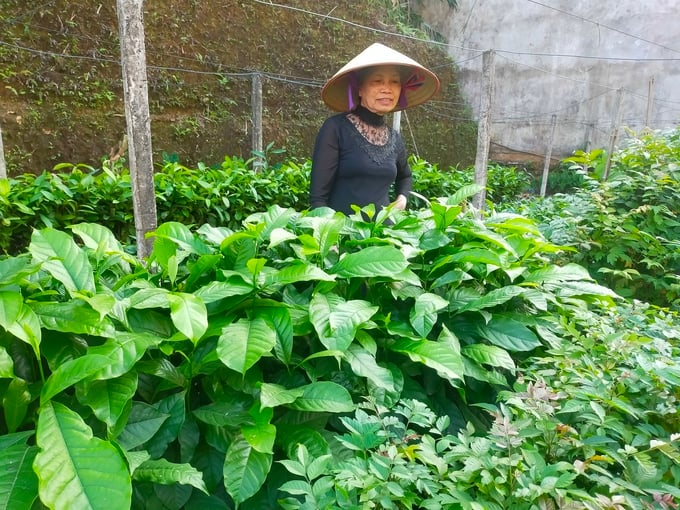
The small and fragmented nature of many forest tree seed production and business establishments poses significant challenges in terms of management. Photo: Thanh Tien.
Currently, Yen Bai province recognizes 29 sources of forestry tree varieties from transformed seed forests, encompassing 25 acknowledged seed forests covering a total area of more than 350 hectares in Tram Tau, Mu Cang Chai, Van Yen, Van Chan, Tran Yen, and Yen Binh districts. These areas host a variety of tree species, including pine ma vi, medlar, po mu, to hap, medicinal plants, sa moc, cinnamon, lard, acacia mangium, and oak. Notably, Nghia Lo town boasts a leading macadamia garden spanning over 1 hectare. The recognized sources of forestry plant seeds showcase diversity in tree species, effectively meeting the demands for seedling production for afforestation within and beyond the province. Furthermore, these sources contribute to the cinnamon and medlar seeds supply to other provinces.
"Small-scale production and a craving for low prices present challenges in forestry plant variety management," added Mr. Kieu Tu Giang, Director of the Yen Bai Provincial Forest Protection Department. He highlighted that controlling seed sources for production and business encounters numerous difficulties. Households and individuals engaged in the production, trade, and use of forestry varieties operate on a small scale, often independently, neglecting adherence to standards and techniques. Furthermore, they need more concern for maintaining the chain of custody of forestry plant varieties.
An additional hurdle in management arises from the limited specialized forestry force at the district and commune levels. Many localities need more forestry staff, resulting in lax management that only becomes active in response to written directives from the provincial level. Moreover, some areas still view plant variety management as the sole responsibility of provincial authorities.
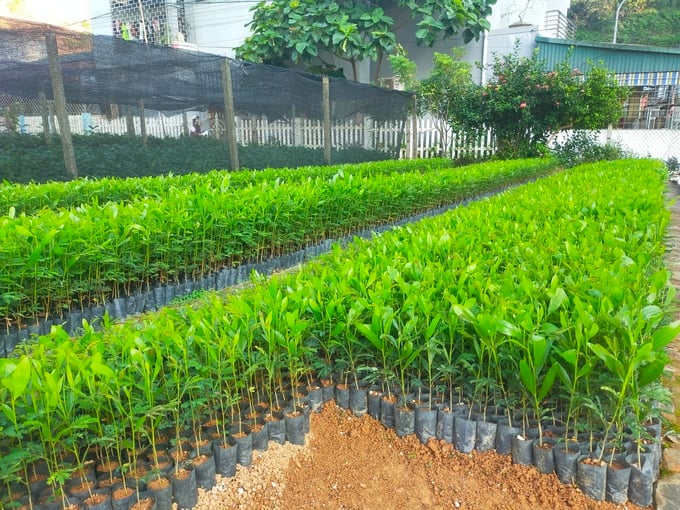
Many people buy cheap seedlings, so they cannot avoid poor-quality seeds. Photo: Thanh Tien.
The awareness of legal regulations regarding forestry plant varieties among nursery owners, often households and individuals, remains constrained. Many forest growers, seeking to reduce investment costs, opt for inexpensive, non-origin varieties, contributing to the proliferation of small-scale and household seed production establishments.
Mr. Nguyen Thai Binh, Deputy Director of the Department of Agriculture and Rural Development of Yen Bai province, emphasized the importance of suitable varieties as the foundation for adopting advanced techniques and technology, enhancing the output, quality, and efficiency of afforestation, especially for production forests. The province is committed to effectively managing and improving the quality of forestry plant varieties from now until 2025, with a vision extending to 2030. The aim is to achieve a controlled source rate of 95% or more for the seedlings supplied for afforestation.
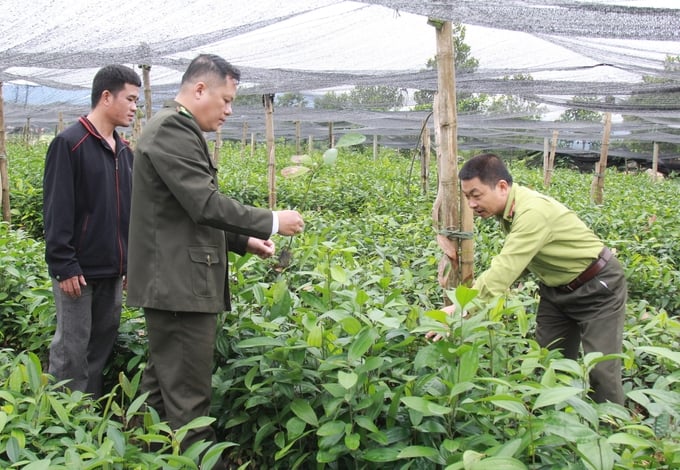
Yen Bai province is steadfast in its goal to manage and control over 95% of forest tree seed sources by 2030. Photo: Thanh Tien.
Yen Bai province remains committed to guiding localities and organizational units to implement forestry plant variety management laws effectively. The emphasis is on stringent quality control throughout the chain for key forestry plant varieties. The directive focuses on overseeing the construction of native tree seed forests, aligning with the broader objective of restructuring the agricultural sector within the forestry domain.
To support these efforts, there is encouragement for implementing chain seed quality management for various forestry plant varieties. This involves ensuring traceability and enhancing seed quality before they are planted in forests. Additionally, steps are being taken to regularly update the electronic information portal of departments and branches with pertinent information. This includes the list of organizations and individuals engaged in producing and trading qualified forestry plant varieties, as well as the catalog of recognized or invalidated seed sources according to regulations.
The province is intensifying its commitment to inspection, examination, and handling of violations in the production and trading of forestry plant varieties. Collaboration with functional departments and branches is ongoing to conduct research and apply science and technology in conserving and storing genetic resources. This includes selecting and creating forestry plant varieties, specifically focusing on new, productive, and high-quality varieties.
Beyond state management, localities and relevant units are urged to increase awareness through effective propaganda. The goal is to guide the public in utilizing seedling sources from reputable licensed establishments. Simultaneously, seedling producers are called upon to adhere strictly to regulations and requirements to ensure the quality of forestry tree varieties. Yen Bai province aims to create a robust framework for sustainable forestry plant variety management by fostering collaboration and awareness.
Translated by Quynh Chi
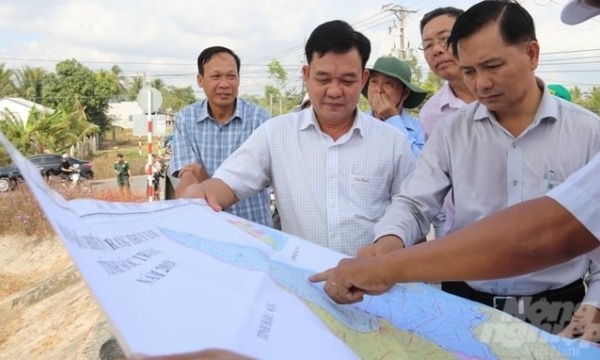
(VAN) Due to the limited attraction of investments, certain projects are experiencing slow operation, the provincial authorities in Soc Trang have requested multiple departments, agencies, and local governments to address and resolve these challenges.
/2024/05/15/1829-4-165554_210.jpg)
(VAN) Thanks to experience and the application of scientific advances in production, citrus trees in Bac Tan Uyen district are harvested all year round without worrying about 'excess products flooding the market'.
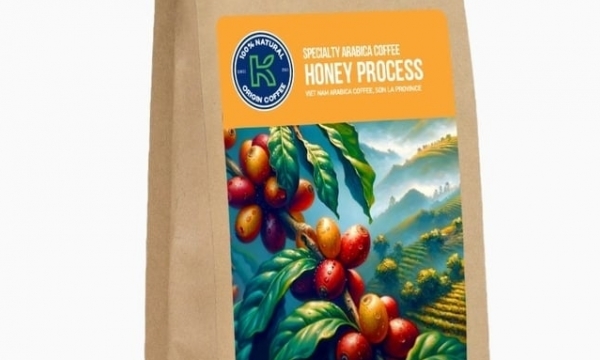
(VAN) Phuc Sinh Group officially launched its Honey & Natural Specialty Coffee product on May 15, featuring coffee beans harvested from the Northwest Arabica coffee region.
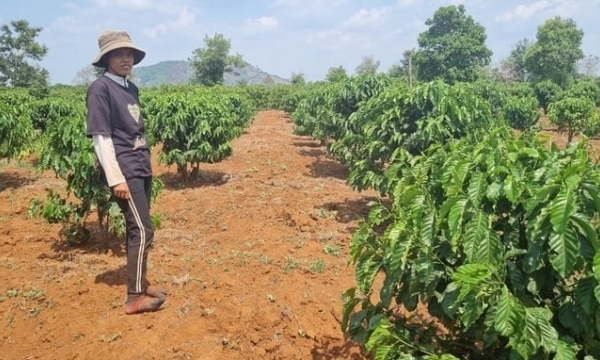
(VAN) Despite local authority's advice to stabilize sustainable production, people are rushing to plant coffee seeds due to the high coffee prices.
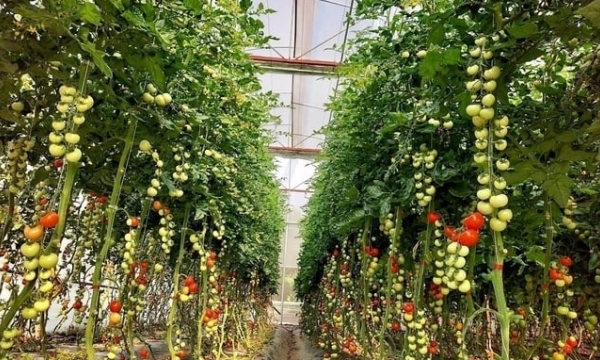
(VAN) Thanks to the support from FAO experts, Mr Tu has learned the techniques of grafting and producing vegetable seedlings to supply for Moc Chau (Son La).
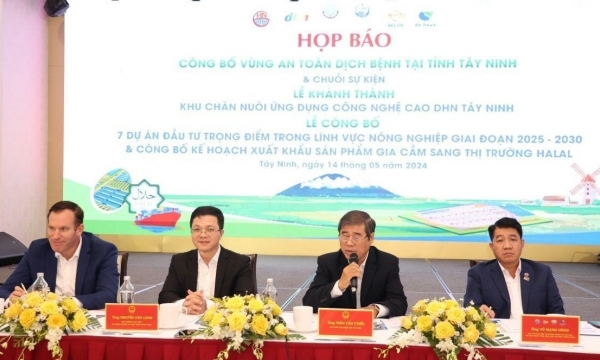
(VAN) A press conference was held to discuss the announcement of disease-free zones in Tay Ninh province and a series of events scheduled for May 19.
/2024/05/14/3402-0-222618_328.jpg)
(VAN) To develop deer farming sustainably, Ha Tinh province synchronously implements many solutions, including encouraging businesses to maintain and improve the quality of the deer breed herd.